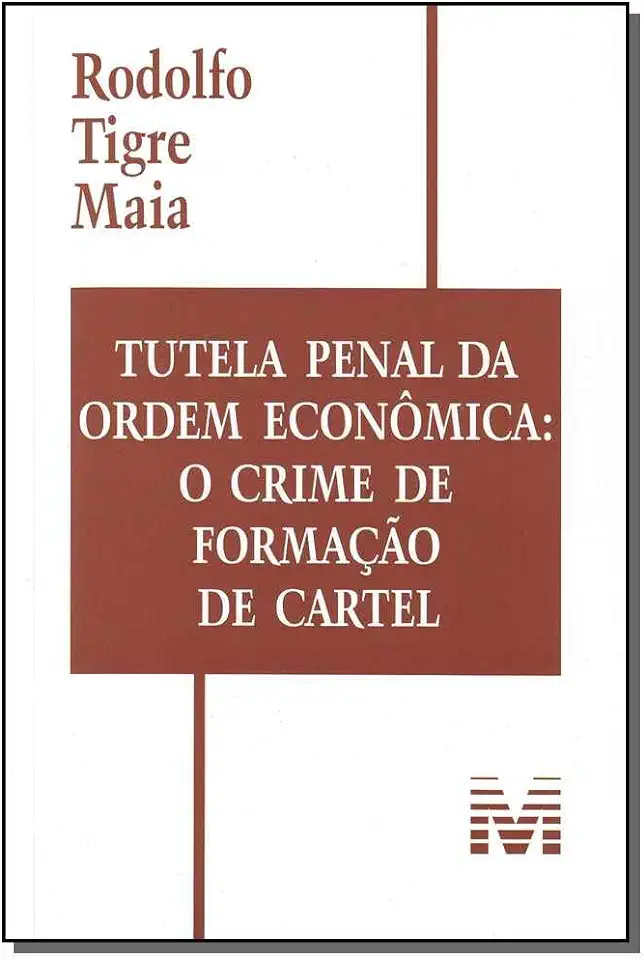
Criminal Protection of the Economic Order - The Crime of Cartel Formation - 1st ed./2008 - Maia, Rodolfo Tigre
Criminal Protection of the Economic Order: The Crime of Cartel Formation
In his groundbreaking book, "Criminal Protection of the Economic Order: The Crime of Cartel Formation," Rodolfo Tigre Maia delves into the intricate relationship between criminal law and the economic order, shedding light on the insidious crime of cartel formation. With meticulous research and compelling arguments, Maia presents a comprehensive analysis of the legal framework surrounding cartels, their detrimental impact on society, and the urgent need for effective enforcement mechanisms.
Understanding Cartels: A Threat to Fair Competition
Cartels, characterized by agreements among competitors to fix prices, allocate markets, or restrict production, pose a significant threat to fair competition and economic efficiency. Maia meticulously dissects the inner workings of cartels, exposing their harmful consequences on consumers, businesses, and the overall economy. By suppressing competition, cartels artificially inflate prices, limit consumer choice, and stifle innovation, ultimately undermining the very foundations of a healthy market economy.
The Role of Criminal Law: A Call for Action
Maia argues that criminal law plays a pivotal role in combating cartel formation, emphasizing the need for robust enforcement mechanisms to deter and punish cartel behavior. He meticulously examines the existing legal frameworks in various jurisdictions, highlighting their strengths and weaknesses in addressing cartel-related crimes. Drawing on case studies and real-world examples, Maia demonstrates the effectiveness of criminal prosecution in dismantling cartels, promoting competition, and protecting the economic order.
Overcoming Challenges: Towards Effective Enforcement
Recognizing the challenges in detecting and prosecuting cartel offenses, Maia proposes innovative strategies to enhance enforcement efforts. He advocates for increased international cooperation, improved whistleblower protection, and the adoption of leniency programs to encourage cartel members to come forward and cooperate with authorities. By addressing these challenges head-on, Maia paves the way for more effective enforcement, ensuring that cartels are held accountable for their illicit activities.
Conclusion: A Call to Action for a Fairer Economic Order
"Criminal Protection of the Economic Order: The Crime of Cartel Formation" serves as a clarion call for action, urging policymakers, legal practitioners, and society at large to recognize the gravity of cartel formation and the urgent need for effective criminal enforcement. Maia's comprehensive analysis and persuasive arguments make this book an essential resource for anyone seeking to understand the intricate relationship between criminal law and the economic order. By shedding light on the detrimental effects of cartels and advocating for robust enforcement mechanisms, Maia contributes to the ongoing fight for a fairer and more competitive economic landscape.
Enjoyed the summary? Discover all the details and take your reading to the next level — [click here to view the book on Amazon!]